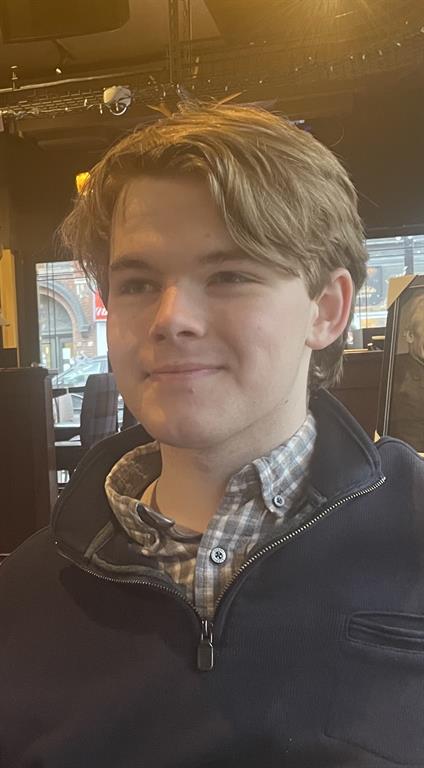 By Patchen Barss
By Patchen Barss
Declan Bright’s interests in library sciences and archival studies grew over time, ultimately leading him to the Applied Museum Studies program at Algonquin College.
“In simple terms, I like rifling through old and dusty stuff to find pieces of what once was,” he says. “I’m extremely excited about my acceptance. It clicks perfectly with my interests and opens up a massive amount of personal and career opportunities, in addition to giving me the chance to live in a city as important to Canadian history as Ottawa.”
Within that archival realm, Bright’s interests (or “hyper-fixations,” as he sometimes calls them), include military history to ornithology.
“Those have been longstanding fascinations throughout my life, and I genuinely can't quite figure out where either truly began,” he says. “Funnily enough, the two have crossed paths more than you'd think, as British and commonwealth forces had a surprising number of amateur and professional ornithologists during both world wars. Something of a footnote, but a neat little intersection nonetheless.”
Bright, whose introspection and self-awareness appears key to how he communicates, views his autism spectrum disorder as neither blessing nor curse, but as “simply a different form of human experience.” He also has experienced depression and anxiety, which have been exacerbated by living through challenging times both personally and societally. He credits his longtime social worker Janice with helping him navigate those experiences.
“She's known and seen me for longer than anyone that's not related to me,” he says. “She's been with me though my parents’ separation, through multiple years of the covid-19 pandemic, a couple of horrible breakups, as well as the leadup to and aftermath of my father's death. She has always had an open and wonderfully compassionate mind. Over the years she's helped me cultivate a sense of mindfulness and empathy towards others, and also to myself during stressful times.”
As he prepares for university, he’s thinking about how to establish a solid foundation for his adult life. His goals are grounded and modest.
“Success for me means stable employment in a career I am genuinely passionate about, a nice apartment or house (even if I don't own it), an investment or two, a group of people I can love and trust,” he says. “These things are by no means my end goal, but the things I can build on for what comes after.”
Bright is also aware of the uncertainty of the world he will inherit. When considering the impact of the EKO scholarship, he thinks in terms of minimizing his debts (or avoiding them completely) as a bulwark against future economic crises.
“It helps me to actually have the resources and opportunity to plan ahead, rather than perpetually reacting to personal and societal economic instability,” he says. “The world's pretty scary right now, having less to worry about is a luxury few can afford.”
Meet our 2025 EKO Scholars